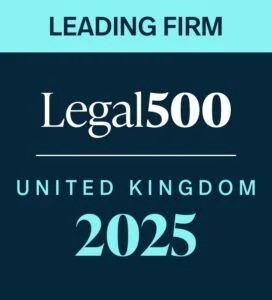The recent High Court ruling in DKH Retail Ltd & Ors v City Football Group Ltd [2024] (EWHC 3231 (Ch)) has underscored the importance of new case management rules for UK courts. Despite the objections of the defendant, the Manchester City commercial operations company, to a mediation to attempt to resolve Superdry’s claims, the court ordered it to engage in a mediation to take place very shortly before the trial date.
This decision marks the first reported instance of a court exercising its new Civil Procedure Rules (CPR) case management power to order a party to engage in ADR (Alternative Dispute Resolution), here in the form of mediation. Other forms of ADR include arbitration, expert determination and neutral evaluation.
Before this new CPR power came into effect on 1 October 2024, the court’s permitted sanctions under the CPR against a party which unreasonably refused to engage in ADR stopped short of actually ordering that party to engage in an ADR process. But that position had already started to erode in November 2023. In the case of Churchill v Merthyr Tidfyl Borough Council, the Master of the Rolls, Sir Geoffrey Vos (who heads the Court of Appeal Civil Division), explained that:
“… the court can lawfully stay proceedings for, or order, the parties to engage in a non-court-based dispute resolution process provided that the order made: (a) does not impair the very essence of the claimant's right to a fair trial, (b) is made in pursuit of a legitimate aim, and (c) is proportionate to achieving that legitimate aim”. (Our emphasis).
The 1 October 2024 update to the CPR imported that analysis by the Master of the Rolls into the CPR. Amongst other related provisions, CPR 3.1 now permits the court to
“(o) order the parties to engage in alternative dispute resolution”.
In this newsletter, we explore the case and its potential impact on the courts’ management of future disputes.
Superdry's claim against Manchester City's Operations Company.
The global clothing chain Superdry started its legal proceedings in 2023. It claimed that the wording "SUPER 'DRY' Asahi 0.0%", on Manchester City’s training kit (as part of its sponsorship deal with the Japanese drinks company Asahi including for its non-alcohol beer) infringed Superdry’s registered trademark ‘SUPERDRY’, and also amounted to the tort of passing off, which is frequently also pleaded in trademark infringement cases.
Superdry argued that this branding was similar to its registered trademark in the class of clothes and could create confusion among consumers. This would satisfy the UK legal test for infringement of trademarks. Confusion is also a central ingredient to prove the tort of passing off. For its part, the Manchester City operations company denied infringement and initially refused to engage in mediation before trial.
Why did the court order mediation?
Superdry applied for an order compelling Manchester City to attend mediation. At the pre-trial review hearing Mr Justice Miles expressed some sympathy with the defendant’s arguments that trial was imminent and that if there was a realistic prospect of a settlement through mediation then that settlement would already have been achieved in the without prejudice discussions which the parties had already engaged in.
However, he then noted that because the cases were fully pleaded in preparation for trial, the parties had fully developed their arguments in contrast to mediations early on in cases where under-developed legal positions can impede the prospects for successful resolution. He added that in his experience the mediation process itself can often succeed in bringing parties to settlement even where their positions are seemingly intractable. Mediation can also provide commercial trading or other agreements to resolve disputes which a court cannot impose. After considering the parties’ submissions, the judge ordered a mediation.
The impact of mediation in this case
A postscript to the published court decision of this pre-trial review hearing confirms that the mediation succeeded in resolving Superdry’s claims. The settlement details have not been publicly disclosed, but the outcome highlights how mediation can effectively resolve disputes without needing a full trial.
How this ruling could influence future cases
This ruling suggests that:
- The UK courts will order a mediation as part of their case management responsibilities where they are satisfied that the circumstances are appropriate;
- In most cases a party will no longer be in a position to persist in opposing a mediation, and
- Some parties previously avoided mediation, believing that refusing to compromise would strengthen their position. However, the Superdry litigation suggests that such a strategy could now very easily backfire.
Will UK courts continue to enforce mediation?
While mediation may still not be suitable for all disputes, this ruling coupled with the Court of Appeal’s analysis in Churchill v Merthyr Tidfyl, demonstrates that the UK courts will be keen to exercise their newly bestowed power to order ADR wherever and whenever circumstances permit. They could be equally keen to rule that in a given case, circumstances will permit.
How 3CS can help
At 3CS, we help businesses navigate all types of commercial disputes. Our experienced disputes team will strive with you to achieve the optimal outcome to your dispute. Please call us today to discuss your issues in more detail.

















